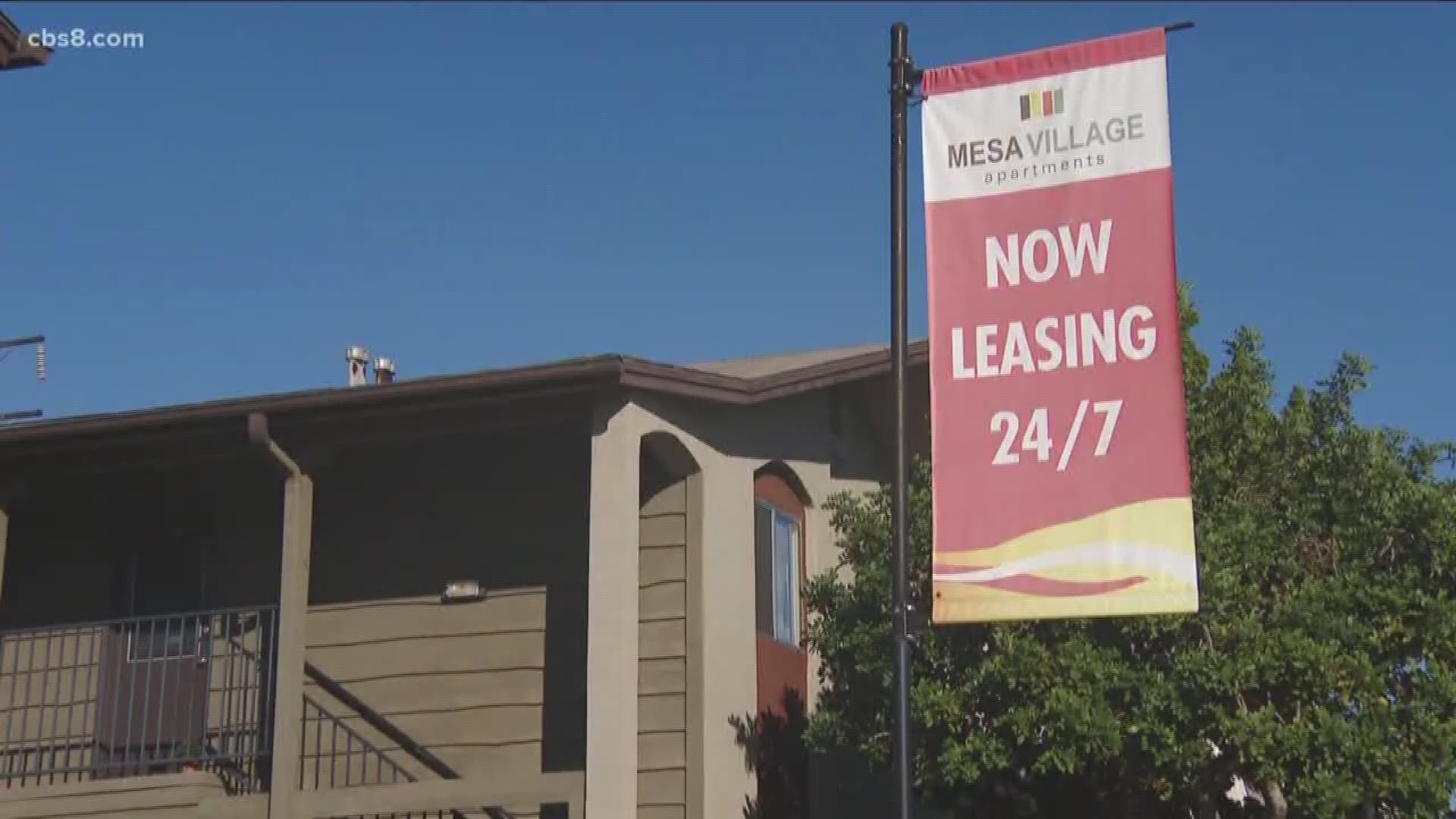SAN DIEGO —
The San Diego City Council at a special meeting Tuesday voted unanimously to pass a temporary eviction moratorium and declare a public emergency stemming from the impacts of COVID-19. The latter provides resources to healthcare providers and allows the city to seek reimbursement for costs accrued during this emergency.
"The COVID-19 pandemic is already causing harm throughout our communities and across our regional economy, impacting vulnerable families, individuals, and businesses," said San Diego City Council President Georgette Gomez. "We must act immediately to protect those who most are at risk of devastating financial hardship."
Gomez introduced the measures, which are strongly backed by Mayor Kevin Faulconer.
“[The public emergency] authorizes us to issue emergency contracts if necessary, to carry out the city business while at the same time combating the spread of the virus,” Faulconer said. “And it allows us to seek reimbursement for costs accrued during this emergency if they are offered by the state and federal government in the future.”
RELATED: Which schools are closed for coronavirus in San Diego County and when will they reopen?
Faulconer said the city attorney will draft a law on the temporary eviction moratorium to go into effect "at least until the end of May" to protect San Diegans from eviction or foreclosure. It would also protect businesses from harsh economic impacts.
"As San Diegans we are going to get through this together. No San Diegan should worry about losing their home or business lease," said Faulconer.
Faulconer stressed that the moratorium does not mean residents can just skip paying their rent.
The San Diego City Council also voted on comprehensive actions to address economic and social impacts from the coronavirus. The aspects would temporarily and ideally stop the following in response to COVID-19:
- immigration enforcement operations including in locations like hospitals, clinics and other healthcare facilities,
- utility late fees and utility shut-offs including gas, electric and water.
- city‘s business tax certificate fees and vehicle habitation ordinance
“We take aggressive steps to be slow the spread of this disease but also prepare for the social and physical impacts. We will have a lot to adjust as a city but I’m confident and optimistic that as a community we are up for that challenge,” said City Councilman Chris Ward.
Mayor Faulconer said the emergency declaration may need to be extended in the coming weeks.
RELATED: As San Diego County coronavirus cases rise to 55, health officials close bars, limit gatherings
____________________
BACKGROUND:
According to the CDC, coronavirus (COVID-19) is a family of viruses that is spreadable from person to person. Coronavirus is believed to have been first detected in a seafood market in Wuhan, China in December 2019. If someone is sick with coronavirus, the symptoms they may show include mild to severe respiratory illness, cough, and difficulty breathing.
Currently, there is no vaccine, however, the CDC suggests the following precautions, along with any other respiratory illness:
- Avoid close contact with people who are sick.
- Avoid touching your eyes, nose, and mouth.
- Stay home when you are sick.
- Cover your cough or sneeze with a tissue, then throw the tissue in the trash.
- Clean and disinfect frequently touched objects and surfaces using a regular household cleaning spray or wipe.
- Wash your hands with soap and water for a minimum of 20 seconds.
The CDC also says facemasks should only be used by people who show symptoms of the virus. If you’re not sick, you do not have to wear a facemask. The CDC says the immediate risk to the U.S. public is low.

